Subtle Differences in Materials
In which Norm compares and contrasts the different releases of BABYGIRL and THE BRUTALIST. It's complicated!
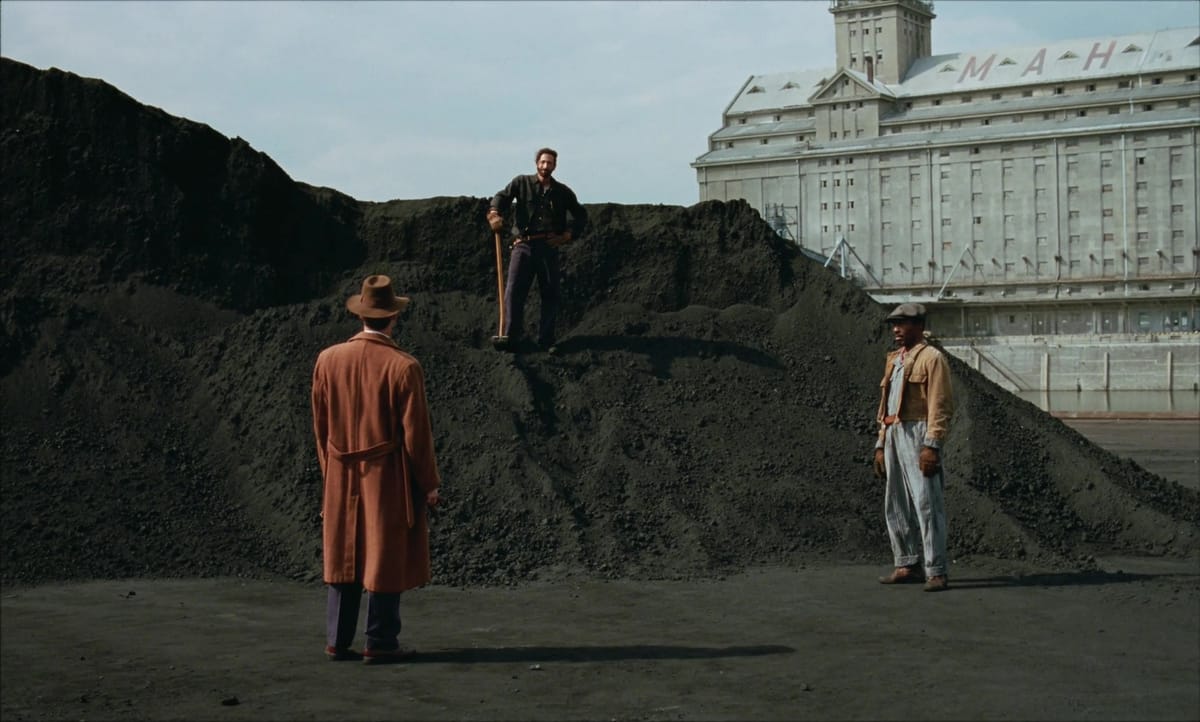
I’ve spent the last couple of weeks apologizing for not yet reviewing Babygirl and The Brutalist, which were released on disc at the end of March. That’s because it took a while for the discs to arrive, and then it took a little while longer for the other discs to arrive.
See, both Babygirl and The Brutalist were released by A24, which has a number of third-party agreements in Canada – some of their titles are distributed up here by Elevation Pictures (Civil War, Midsommar, Marcel, the Shell With Shoes On), others (Heretic, Y2K and Death of a Unicorn) by VVS Films, still others (including Aftersun and Beau is Afraid) by Quebec’s Sphère Media. It’s been a little confusing.
In the US, A24 spent years using Lionsgate for its physical media needs, while occasionally producing limited-run boutique discs for Charlotte Wells’ Aftersun and Joanna Hogg’s Souvenir films or super-special sets of The Lighthouse, Everything Everywhere All at Once and Stop Making Sense for its own online shop. And they’ve become much more invested in that line over the last couple of years, to the point that you can now find those distinctively packaged A24 discs in brick-and-mortar shops and even at other online retailers, while Elevation and VVS continue to produce Canadian editions of most of those titles, with English and French audio and subtitle options for our bilingual market. And often, the space required for an additional soundtrack means rejigging the supplemental section so everything fits on the disc. I’ve caught up to the differences in Canadian releases before, but there were some specific things about the Brutalist releases that made it worth waiting to get them both in hand. And now I have them! So let’s begin.
Let’s talk about the movies first. And I’ll start with The Brutalist, because it’s a goddamn triumph.
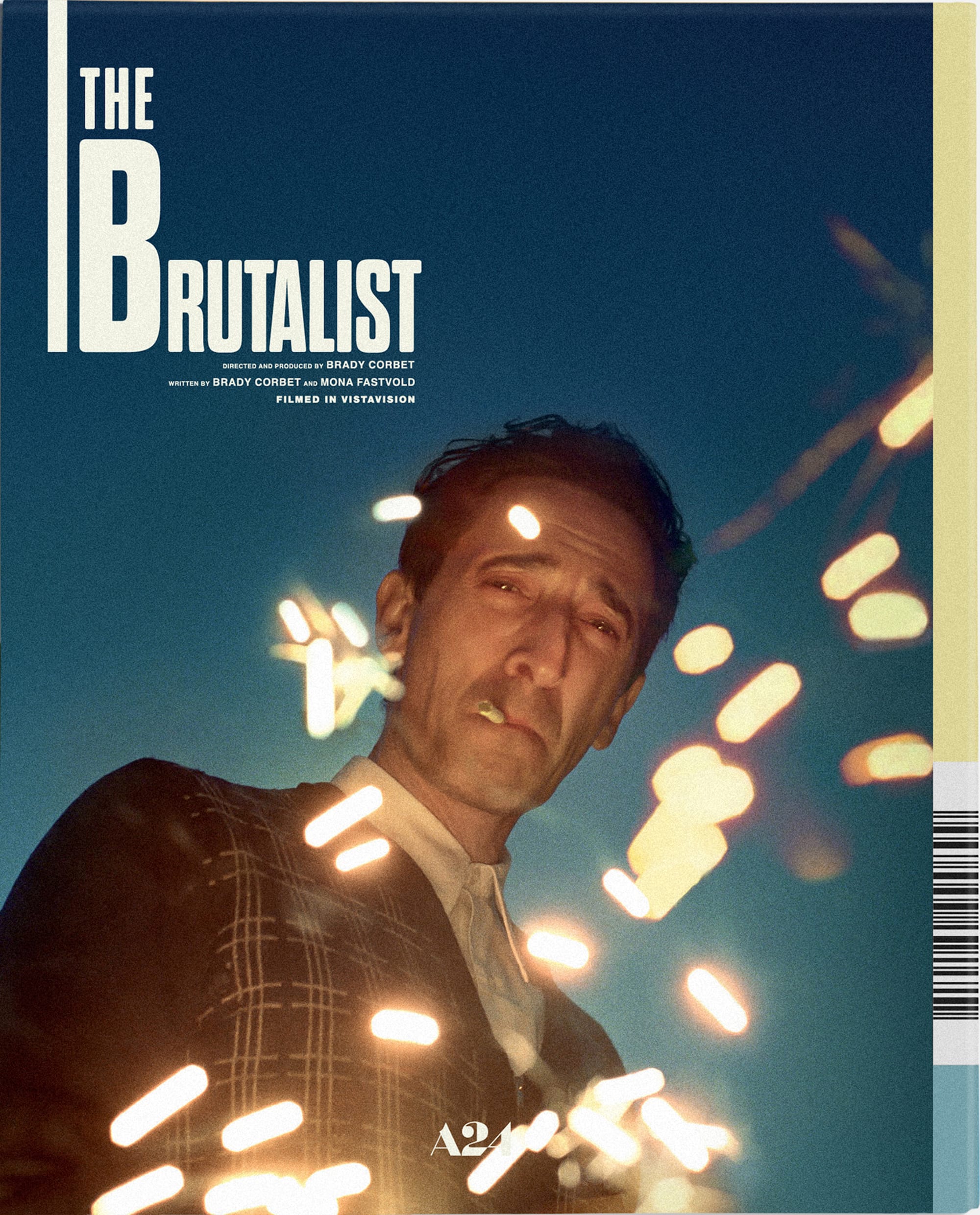
As I wrote in December when it opened theatrically – see what you miss by not subscribing to the paid tier? – Brady Corbet’s epic allegorical look at the empty promise of the American Dream was one of the very best films of 2025. It’s just as long as The Godfather, Part II, and maybe as important.
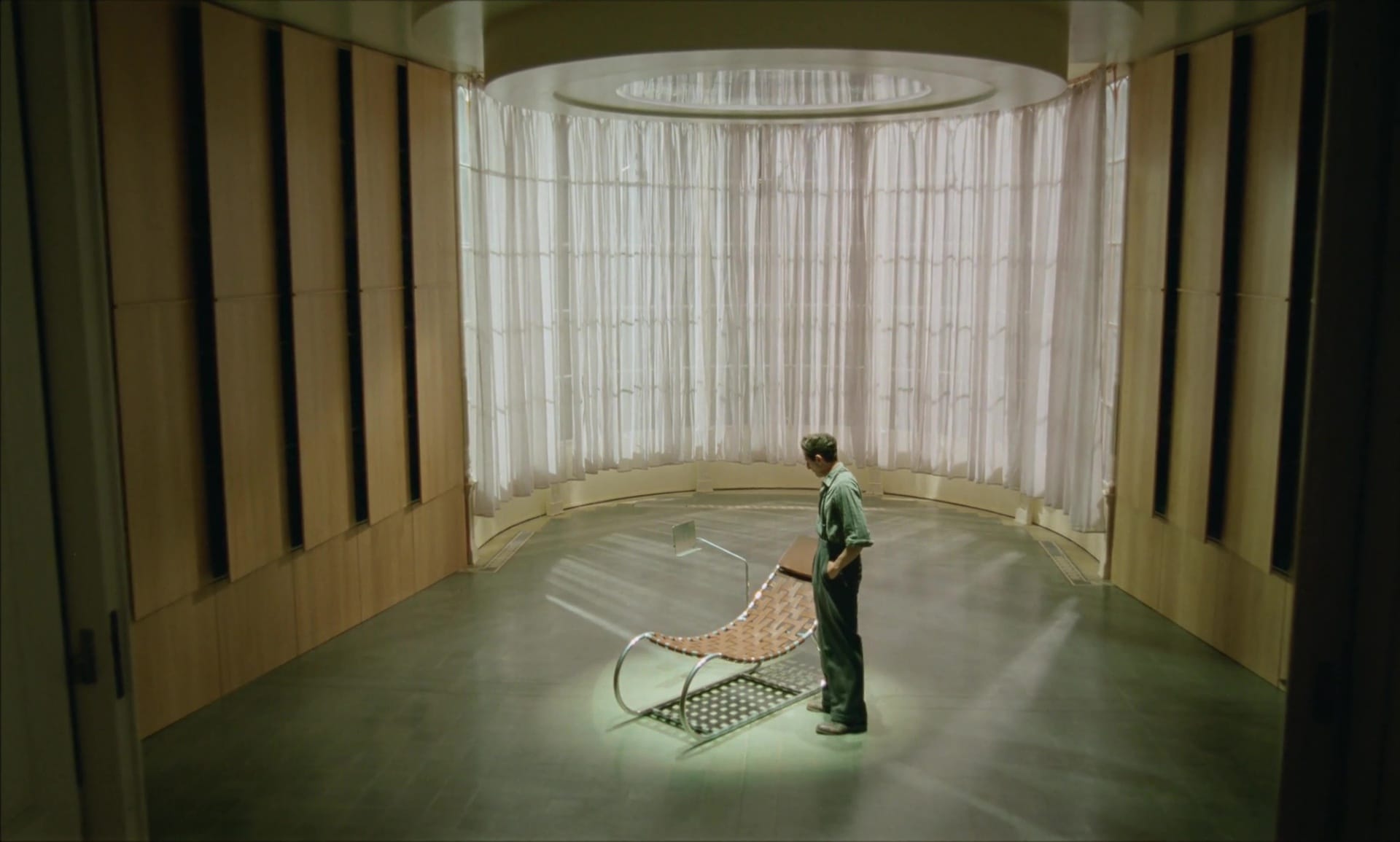
Massive in scale and crushingly intimate in its storytelling, Corbet’s post-war drama casts Adrien Brody as László Toth, a Hungarian architect – and, not incidentally, a Holocaust survivor – who arrives in America to start over, only to find the new world just as ambivalent towards his genius as the old one. I could go on, but I’d rather let Corbet’s masterful accomplishment unfold itself before you … in stunning VistaVision, no less.
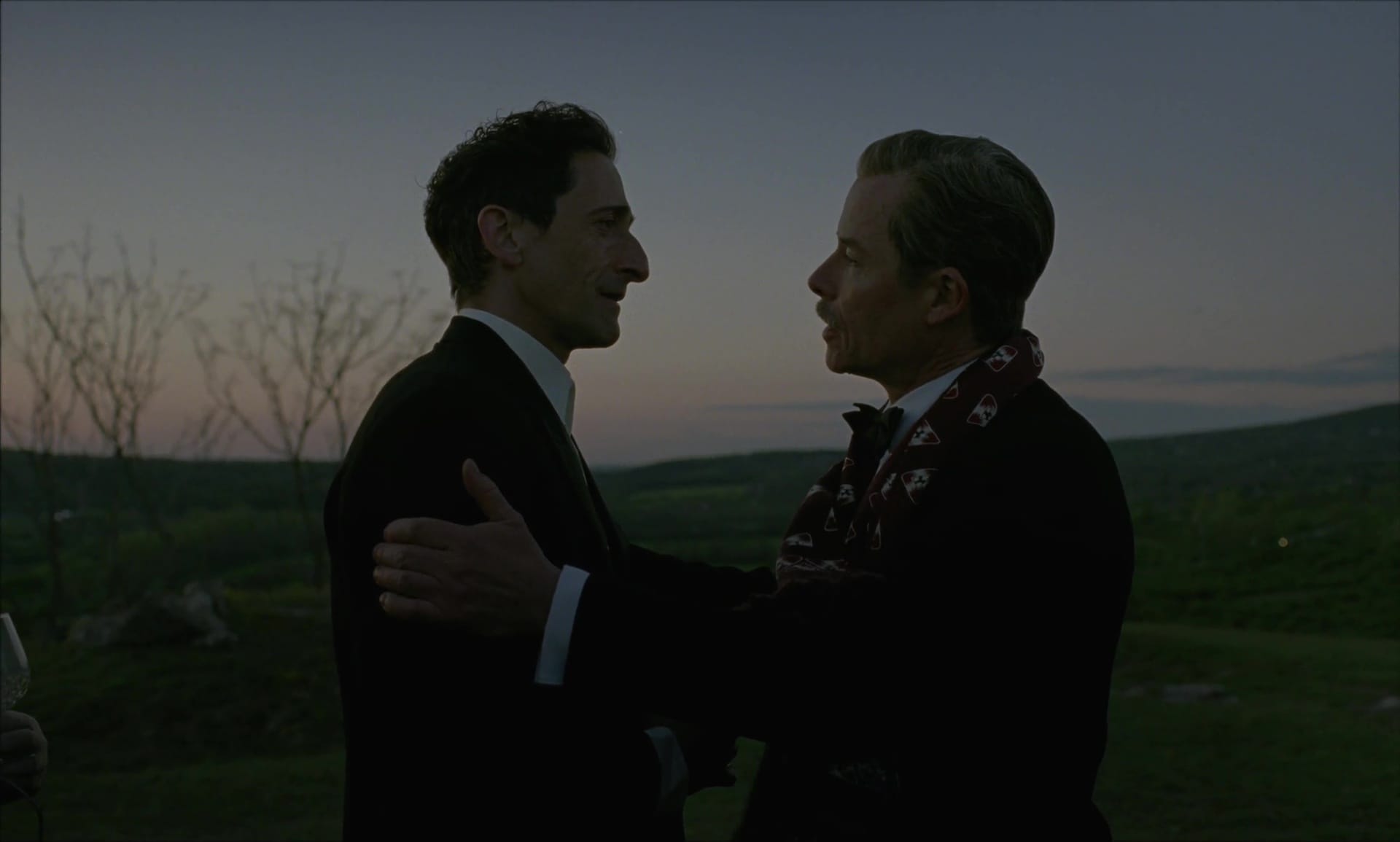
Brody is phenomenal in a role that doesn’t echo his work in The Pianist as much as build upon it, and Felicity Jones, Alessandro Nivola and Guy Pearce all provide complex and intriguing support. (Jones doesn’t even show up until the film’s second half, and still deserves her second billing.) It’s long but there’s not an ounce of fat on it; if I ever get the chance, I’d love to ask Corbet and his partner Mona Fastvold about the influence of Lawrence of Arabia on their writing process, as The Brutalist nods towards David Lean’s towering colossus in a couple of interesting ways.
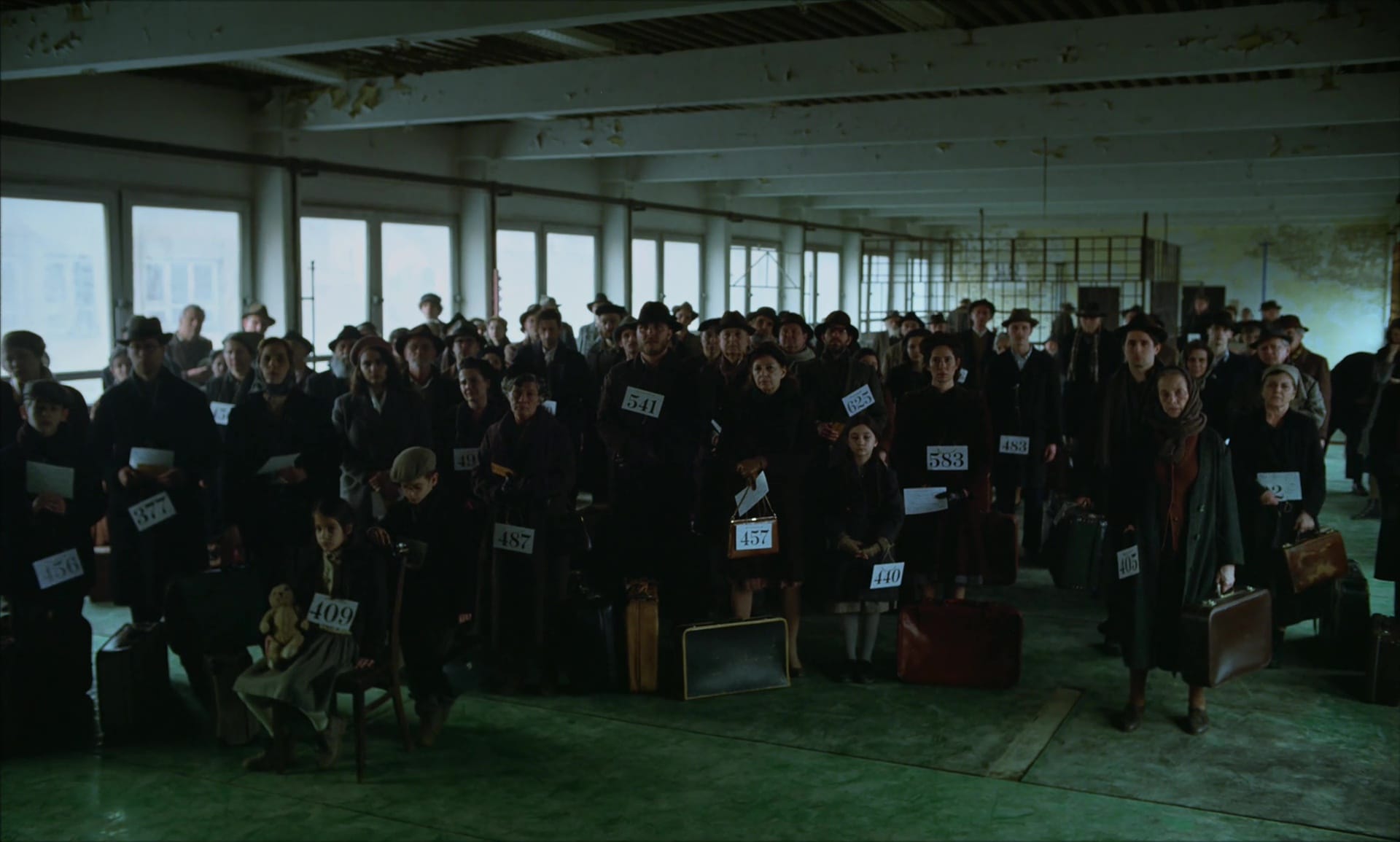
And as with Lawrence, the span of the thing is the point; while the film’s length became an easy joke, it’s necessary to show us how the Toths survive their displacement and recover – or don’t – over the decades that follow, building to a devastating final revelation that’s not blunted in the slightest by the analytical manner in which it’s delivered. In any case, you won’t feel the running time; Corbet structures the narrative with a sure hand, maintaining a consistent momentum and trusting Brody to keep the emotional currents flowing. It’s a tremendous accomplishment, and the Oscars that went to Brody, composer Daniel Blumberg and cinematographer Lol Crawley – who contributes an illuminating audio commentary to the physical release – were well-deserved.
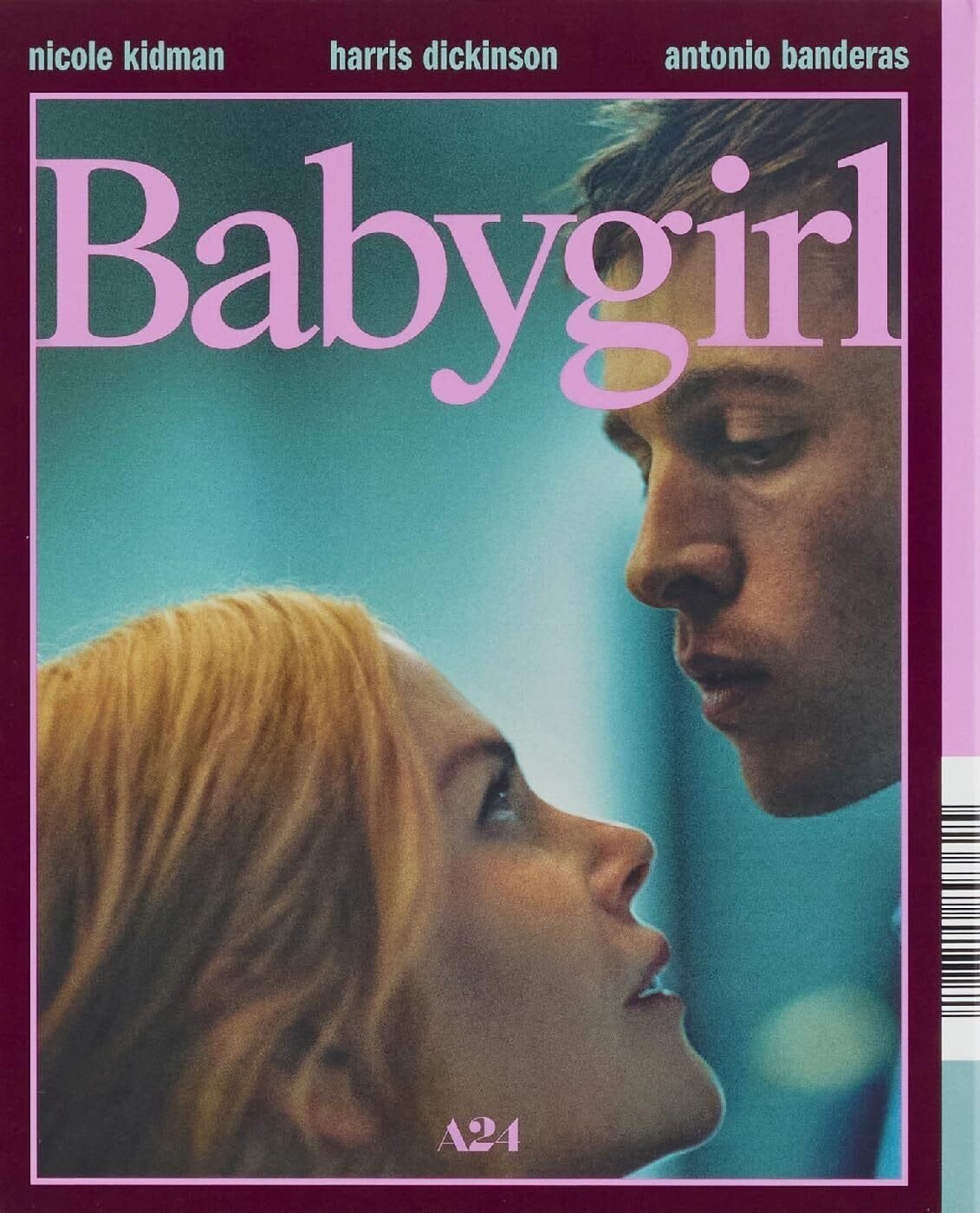
Babygirl is a trickier proposition, being a film about desire and attraction – two things that aren’t usually the center of a story, but rather the motivation for one. Halina Reijn’s drama is entirely about a woman – Nicole Kidman’s CEO Romy – who falls into a masochistic affair with a much younger intern, Samuel (Harris Dickinson). She knows the power imbalance could ruin her; so does he. But the more she tries to quit him, the more he pushes her to come back, and before long she’s neglecting her husband (Antonio Banderas), their children and her company, risking everything she’s built for a man who gives her what she wants.
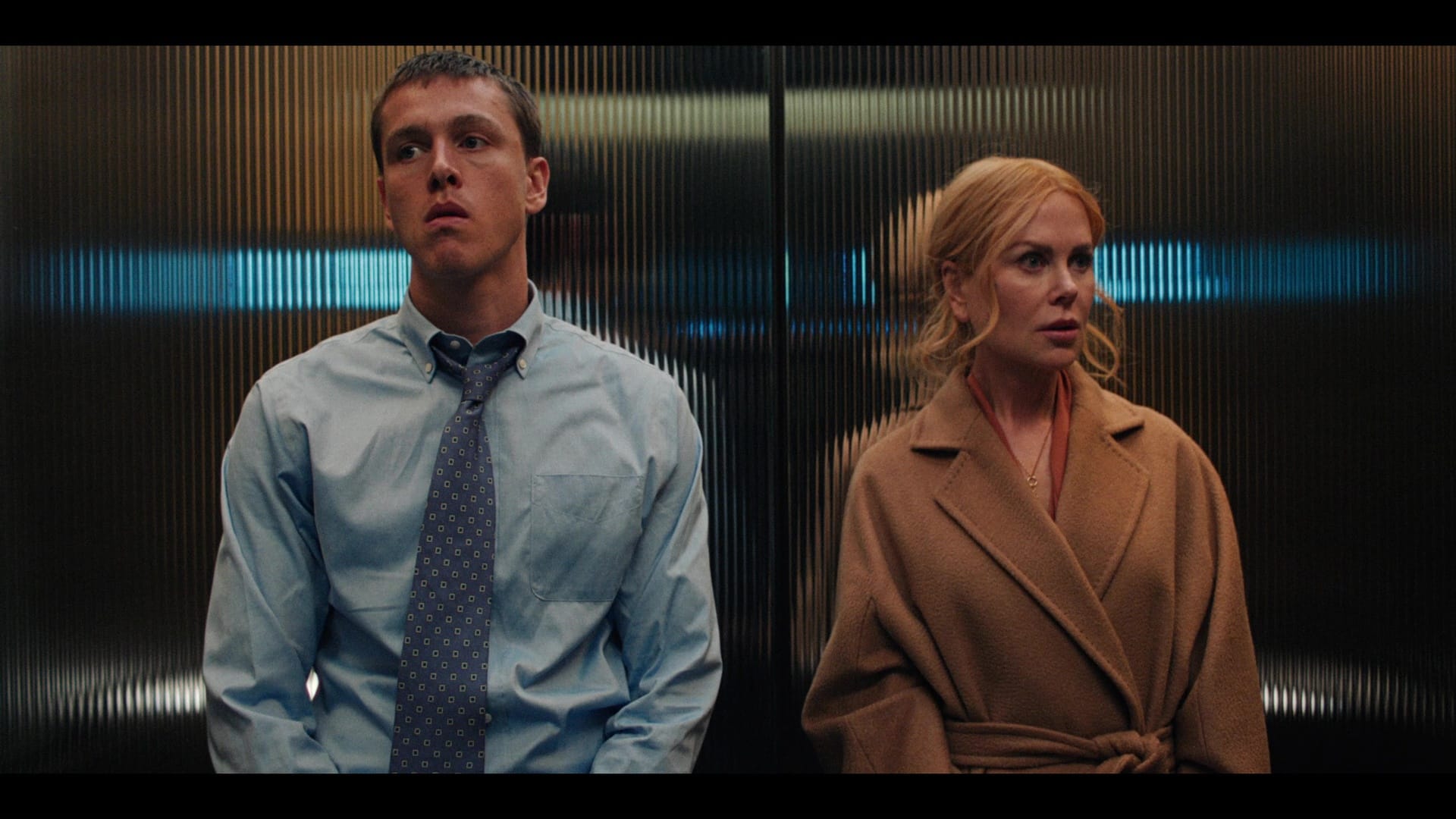
It’s perhaps worth pointing out that Reijn’s earlier Instinct, which played TIFF in 2019, centers on a forbidden attraction between a repressed prison psychologist and her latest patient; this is clearly territory the filmmaker enjoys exploring, and Babygirl offers her the chance to draw in bolder strokes. It also offers an ambiguity that wasn’t present in the previous film, with neither Romy and Samuel ever seeming to be fully in control of their relationship; they’re constantly asking too much of each other, resetting boundaries and crashing through them almost immediately. The most interesting thing about Reijn’s script isn’t its characters’ unspoken desires; it’s the fact that they want to speak about them, but keep stopping themselves. The kink isn’t the problem, it’s the repression.
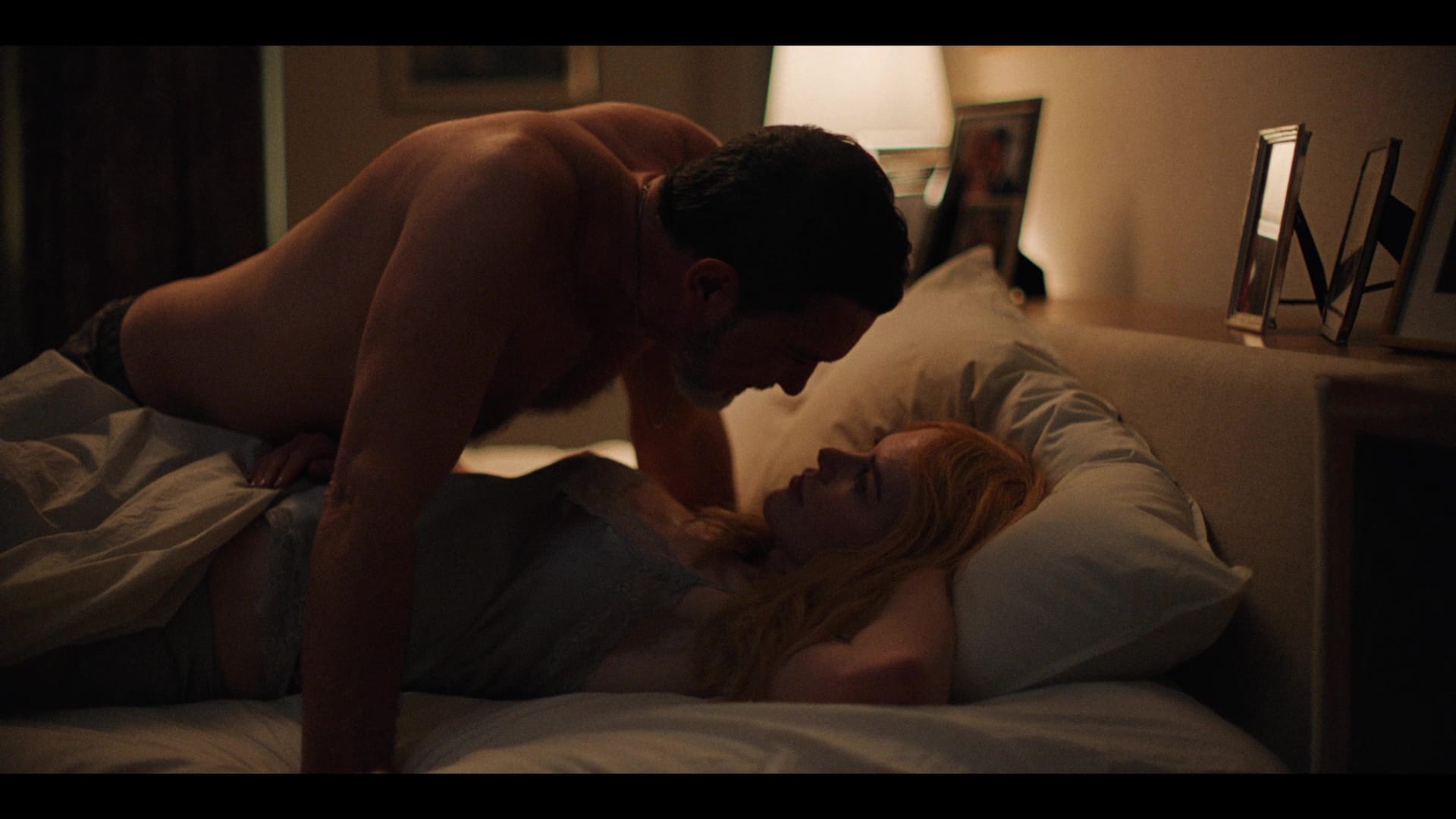
I was surprised to learn the film was being sold as a thriller, and indeed Reijn has cited Fatal Attraction and Basic Instinct as inspirations, both of which offered a very different sort of catharsis than she delivers. Babygirl is ultimately smarter and a lot more sex-positive than either of those films, ending with Romy finally claiming her own power and speaking her desires – both personally and professionally – in clear, unambiguous language. The heart wants what the heart wants, and all that. But so do our other parts.
A24’s Babygirl disc supports the feature with audio commentary from Reijn, a handful of deleted scenes – most of which make Samuel look more calculating than he appears in the final film, nudging the vibe into more conventional thriller territory – and two featurettes. “Directing Desire with Halina Reijn” is a standard making-of, pairing Kidman and Reijn to obliquely discuss the resistance to expressing female desire on screen (which, fair) and checking in with Dickinson and Banderas for their own thoughts about their characters.
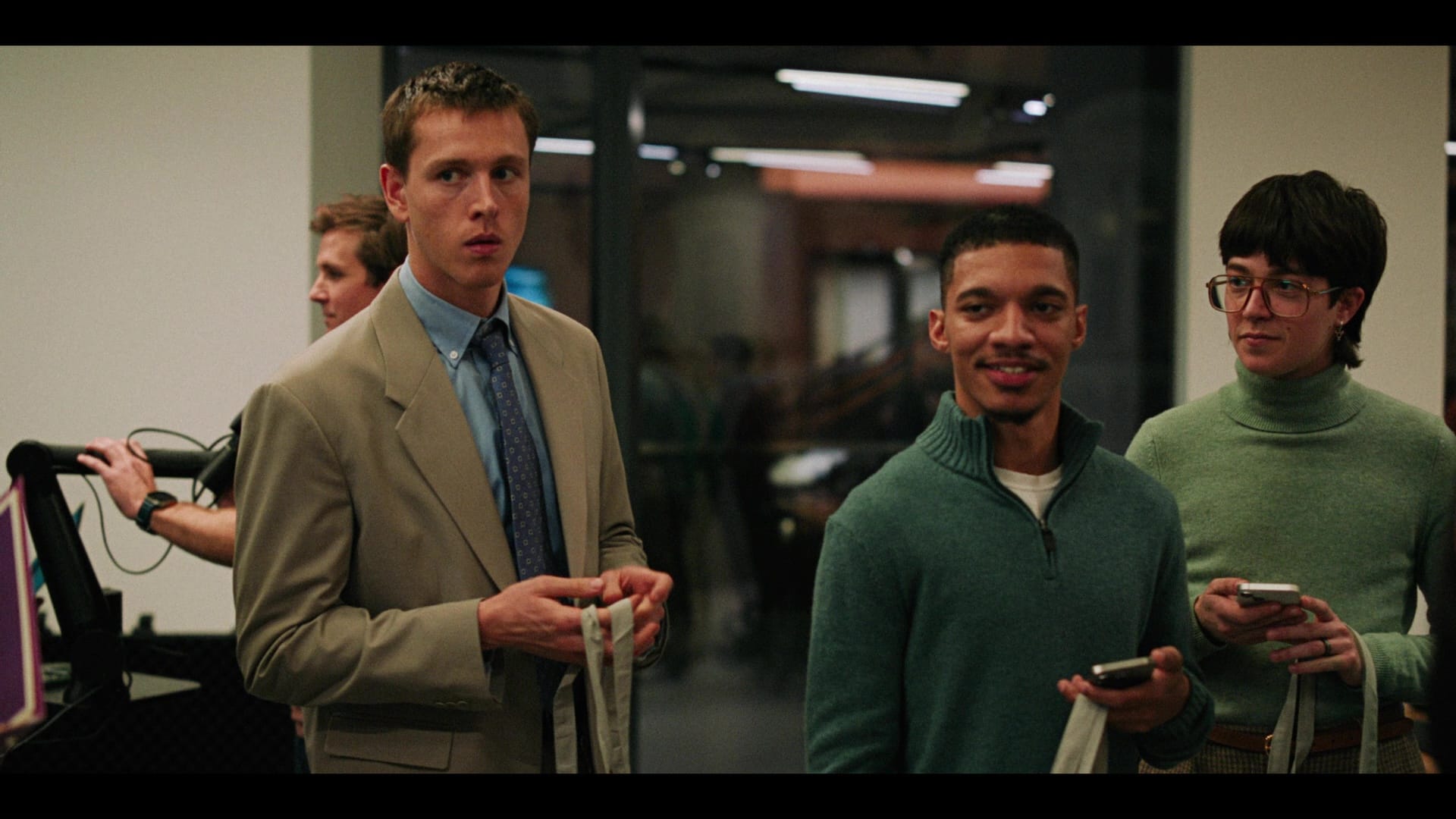
The second featurette, “Power Looks,” lets costume designers Kurt and Bart unpack the looks they designed for each character, and how Romy’s outfits don’t actually evolve over the course of the picture … but how she wears them does. They also expand on the only fashion detail I actually noticed, which is that Samuel’s suit is deliberately ill-fitting, signaling that he’s not nearly as mature or composed as he wants to be, and that both the character and Harris Dickinson look much more comfortable in the athletic wear Samuel sports when he’s out of the office.
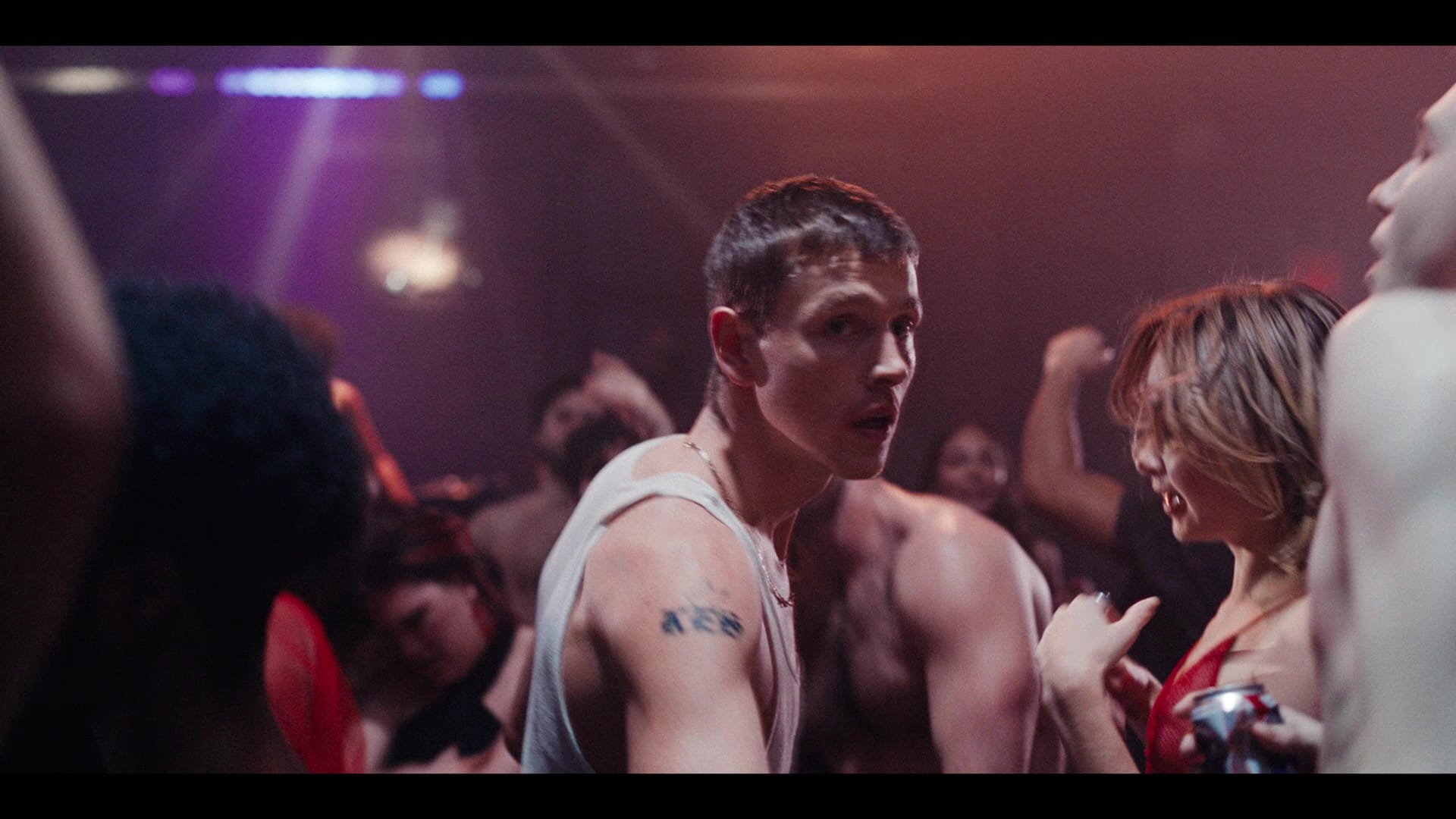
Whether you get the American or Canadian release, the Brutalist 4K disc is an oddity in that it doesn’t offer an HDR grade – the film is offered in standard dynamic range, for reasons that I haven’t been able to determine. (Other VistaVision productions have been released with HDR on 4K discs, most recently Warner’s North By Northwest and Paramount’s To Catch a Thief.)
But A24’s packaging does note that the disc master is “derived from the original 35mm negatives with VistaVision footage scanned at 6K,” and perhaps Corbet and Crawley felt the scan captures their intended color timing without any additional tweaking.
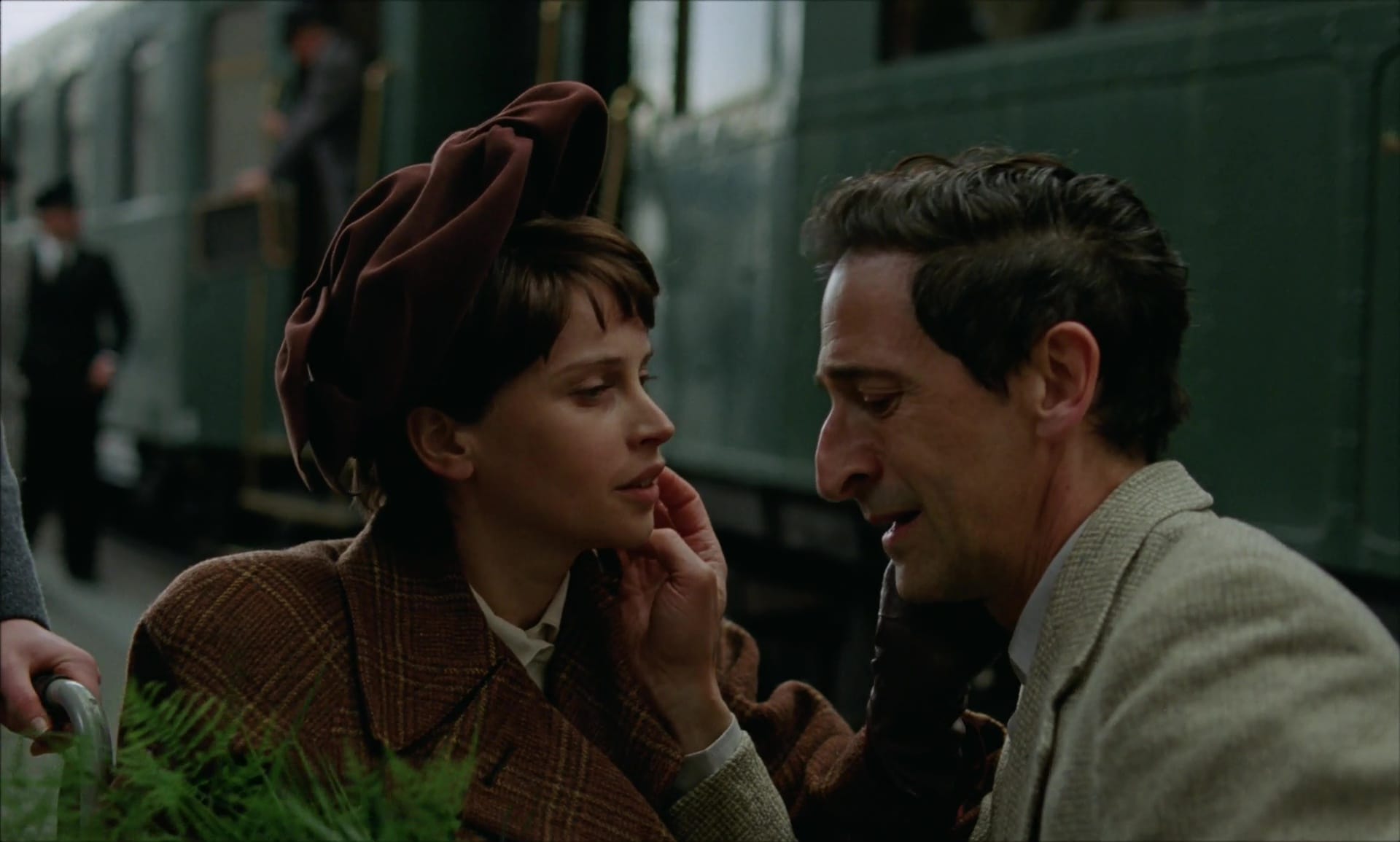
Certainly the few moments where colors are allowed to pop – like the lavish black-tie dinners thrown by Pearce’s tycoon – are vividly realized, while the more visually muted exteriors still express a range of grays and browns, sliding into black. The 4K disc looks exactly like the DCP I saw in December, and the DTS-MA 5.1 audio track is just as faithful – its busy, industrial soundscape competing for our attention with Daniel Blumberg’s Oscar-winning score, then dropping away into reverent silence so László can draw breath before battle.
In addition to the Crawley commentary track, A24’s disc offers a 25-minute making-of, “The Architects of The Brutalist;” both supplements give us a sense of the ambition of the production while also hinting at just how lean the shoot was. Again, it feels like Corbet and his crew achieved the impossible here, and that doesn’t happen every day.
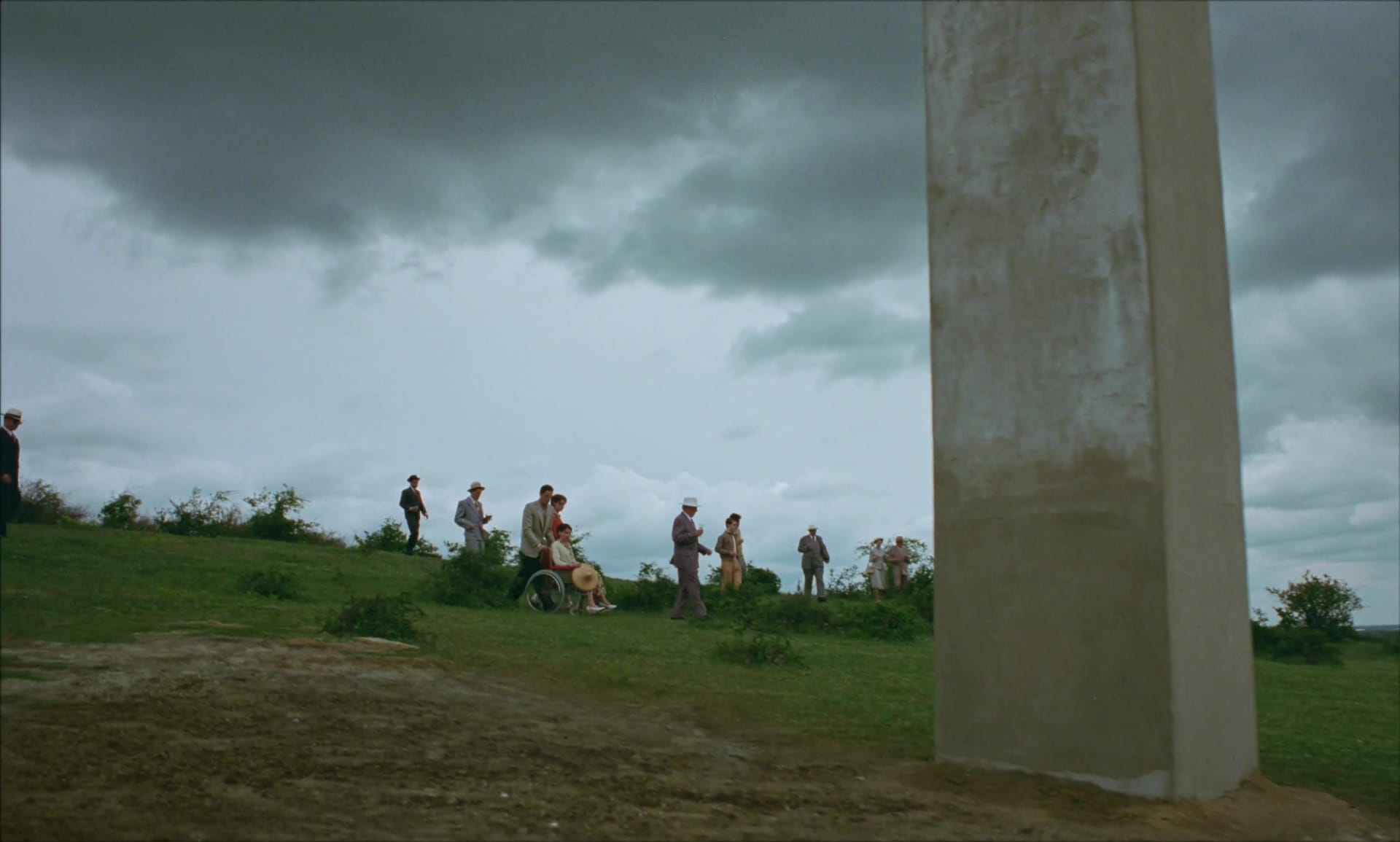
The featurette is not included on Elevation Pictures’ Canadian editions of The Brutalist; Elevation’s Babygirl Blu-ray also leaves out the two featurettes included on A24’s release, though Reijn’s commentary track and the gallery of deleted scenes are carried over. (There is no 4K edition of Babygirl from Elevation.)
While the reduced supplemental section on The Brutalist would usually be a turn-off for collectors, Elevation’s discs have certain online forums buzzing for another, unexpected reason. It's a little complicated, so bear with me.
A24’s releases of The Brutalist have electronic English subtitles for the Hungarian dialogue hard-coded in the image – meaning that even if you turn off all subs, they’ll still be there. But Elevation produces bilingual discs with both English and French audio and subtitles, meaning their masters must have soft-coded subs. Choose the English version of the film and you’ll get English subtitles when needed; choose the French dub, and the corresponding subtitles will be French as well. You can also turn off all subtitle options through your player and watch the movie clean.
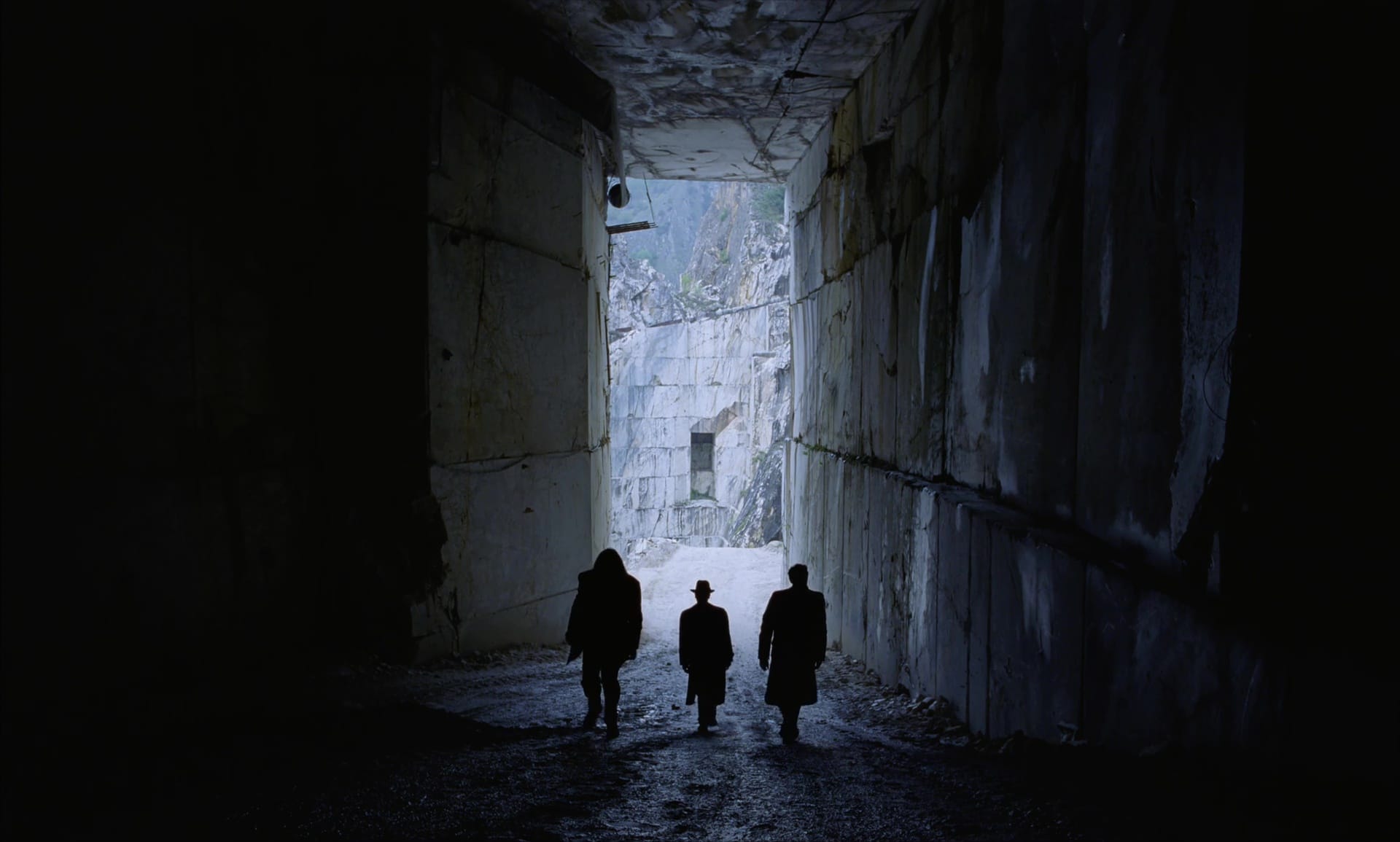
Elevation’s master is therefore different than the one on A24’s disc, and that’s got collectors arguing over whether it's better. One theory is that A24’s 4K discs are mastered with a low-pass filter that affects the grain structure of the source; a movie shot on large-format film, such as The Brutalist, would presumably suffer more. This may be true, but I have watched both UHD Brutalists now, and try as I might I cannot see an appreciable difference: They’re both splendid discs, with reference-quality image and sound. And despite A24's discs listing a 216-minute running time, all physical editions of The Brutalist run 201 minutes, compressing the 15-minute theatrical intermission to a single 60-second countdown. (I told you it'd get complicated.)
My 4K drive tells me that, at approximately 80.5GB, the feature file on Elevation’s UHD release is 2GB larger than the one on A24’s, but that feels to me like a negligible percentage.
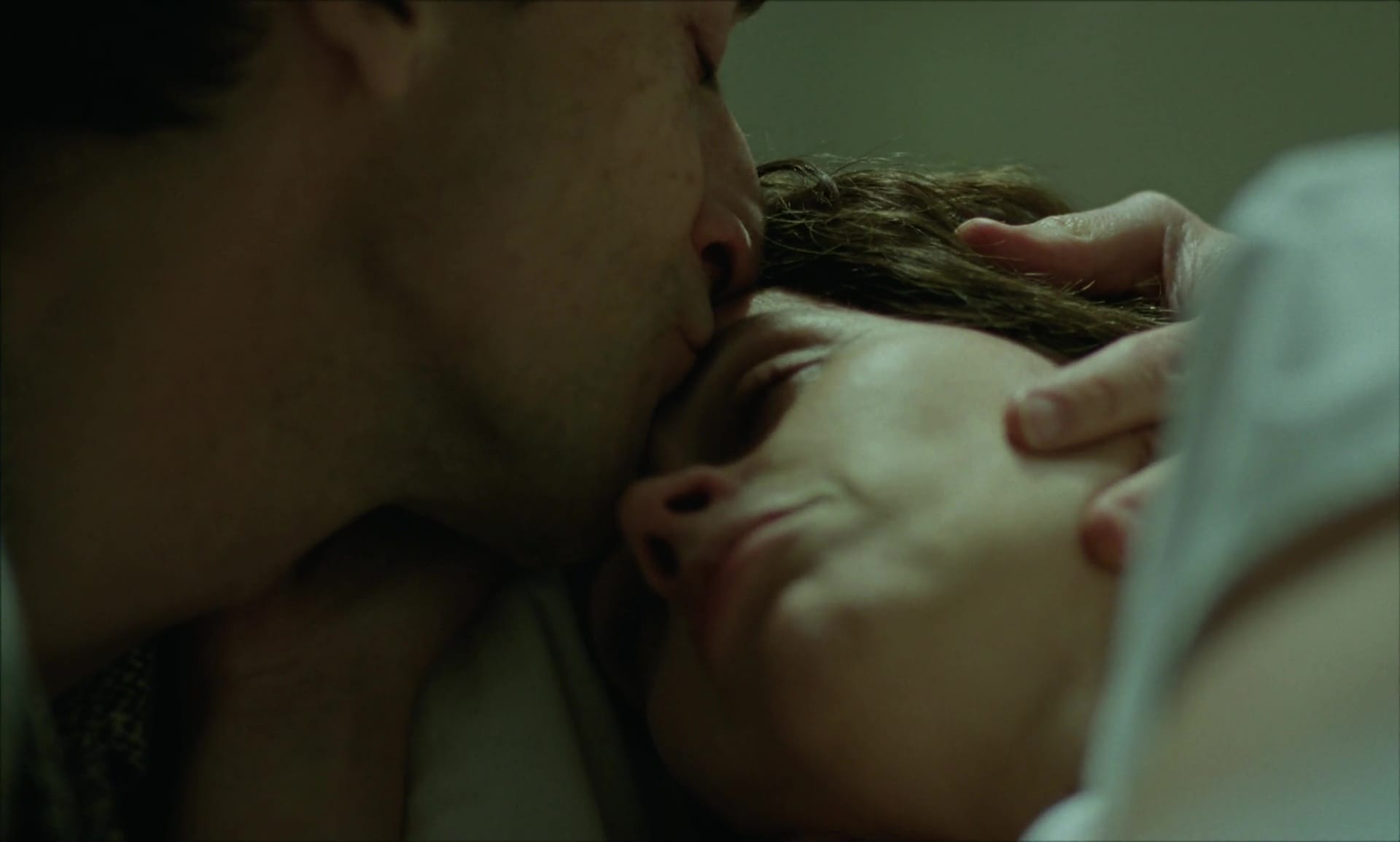
Bottom line? Buy the version you want to buy, but don’t miss out. The Brutalist is one of the best American films of the decade, and both A24 and Elevation have done right by it. Full stop.
Well, almost a full stop, because Elevation has provided me with a Blu-ray Babygirl and both 4K and Blu-ray discs of The Brutalist, so if you haven’t already picked them up you can win one!
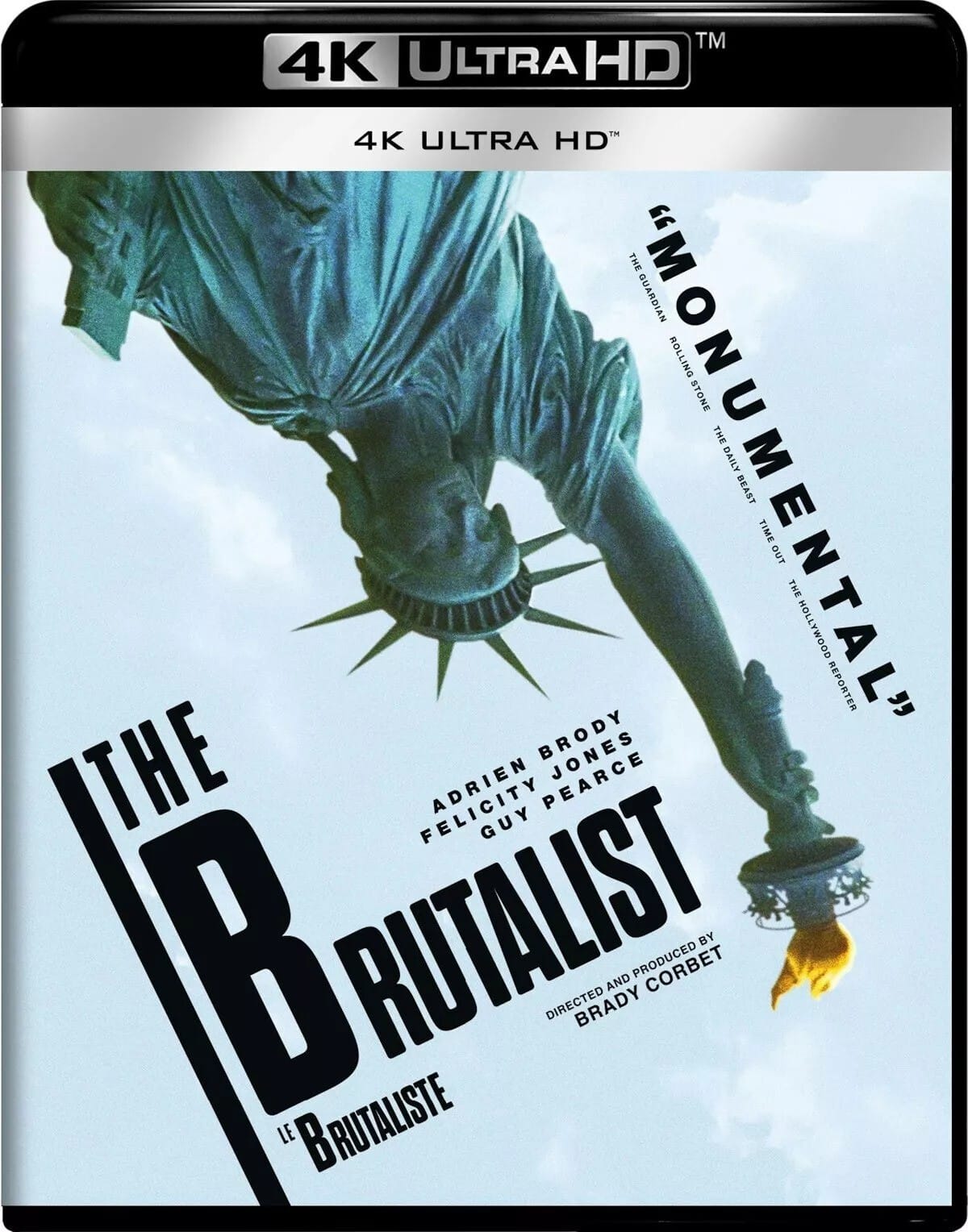
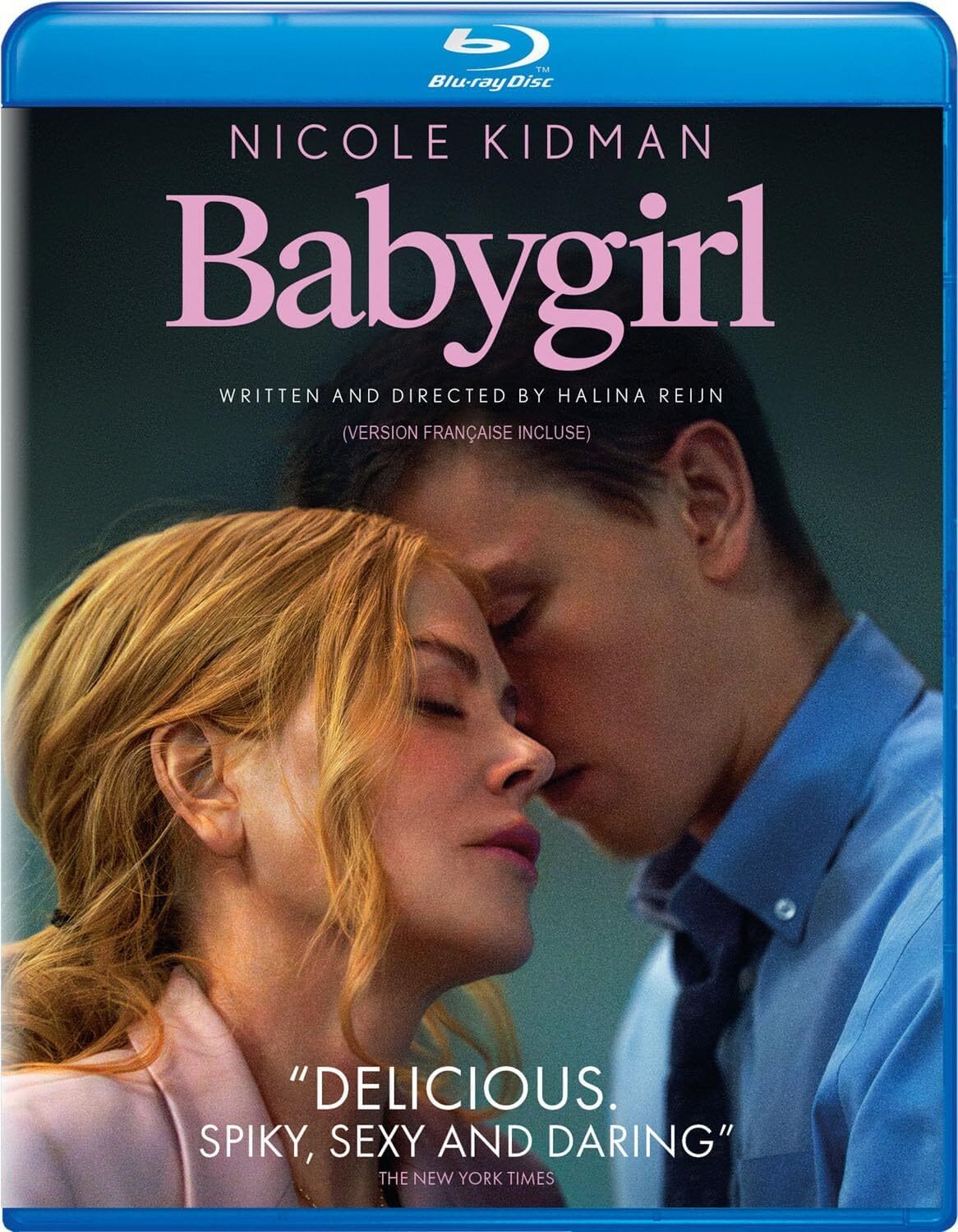
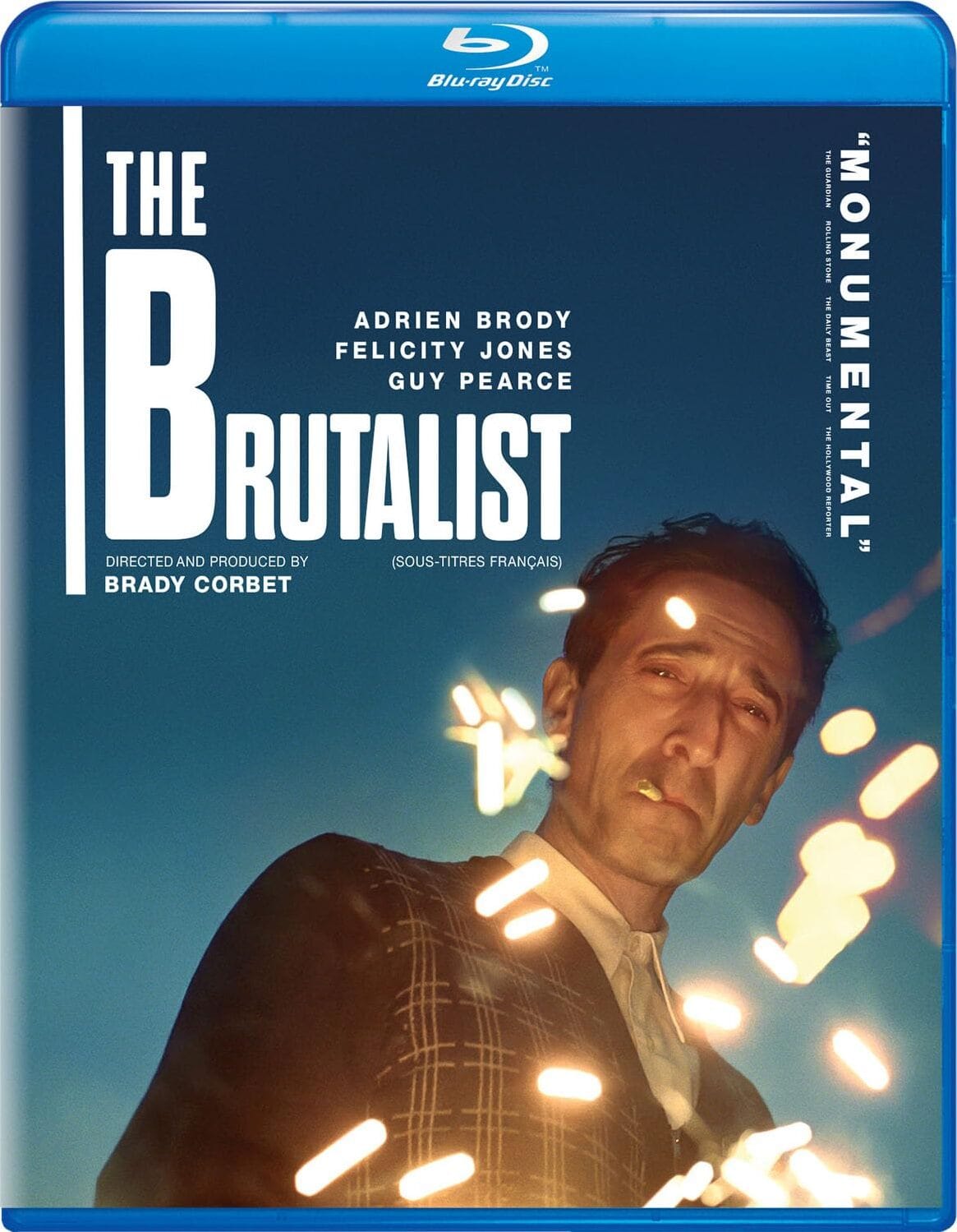
Just e-mail me at normwilner@gmail.com with the version of the disc you’d like in your subject line – Babygirl BD, Brutalist BD or Brutalist 4K – by 12pm ET on Monday, April 14th; three winners will be chosen at random. You can enter for all three if you want! Canadian residents only, I’m afraid, but A24 is always welcome to join in the fun for future giveaways.
Babygirl and The Brutalist are available now in individual 4K and Blu-ray editions from A24 in the US; in Canada, they’re distributed by Elevation Pictures and only The Brutalist has been released in 4K. Like I said, it's complicated.
Up next: As promised, I’ll tackle Via Vision’s new Blus of Man Bites Dog, In the Bedroom and Shattered Glass and Arrow’s delirious 4K special edition of The Long Kiss Goodnight. Stay tuned!
